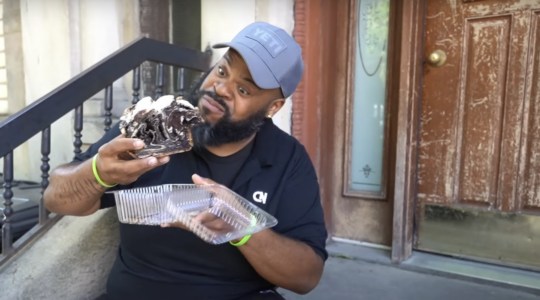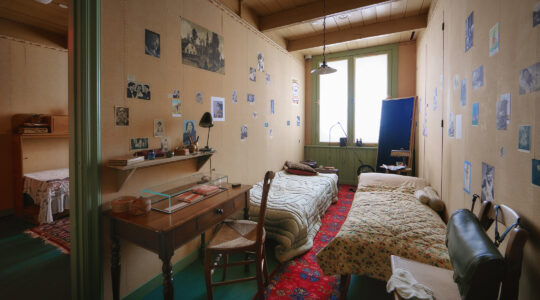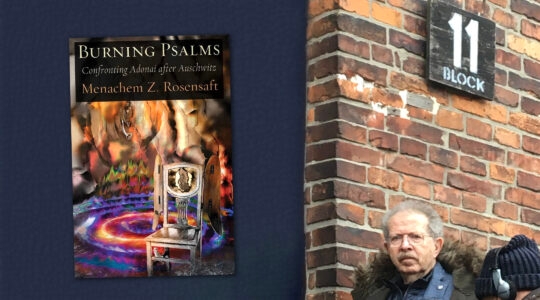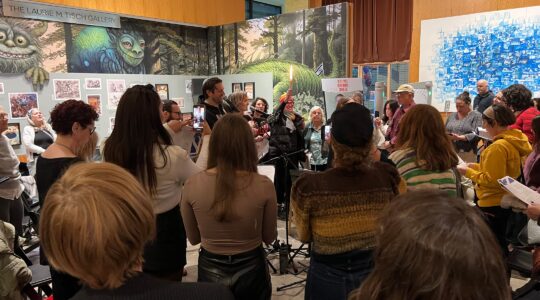Andrew Schiff likes his independence, he says — especially the ability to see friends according on his own schedule and to pursue his many interests and passions, which include baseball and music.
But the 42-year-old resident of the Upper East Side feels lonely at times and hopes to find a partner and raise children — a realization that often strikes him when he leaves his apartment and notices happy couples.
“There are times on the subway when I see a man and woman holding hands or talking, and I wish I had that,” says Schiff, a fundraiser who studied history and recently wrote a book about a famous sports journalist.
“It’s harder for someone in their 40s and 50s to date,” the never-married Schiff says, adding that men in that bracket who want children often feel as if they have to date slightly younger women, as he does. And he acknowledges that he may be frightened of commitment, saying he hopes to get married but doesn’t want to feel “trapped.”
Schiff’s story resembles those of many Jews who, because of divorce or because they’ve never been married, are single long past the age of many of their friends are. The most recent National Jewish Population Survey, conducted in 2000 and 2001, reported that as many as 25 percent of all Jewish adults had never been married, a slightly higher percentage than among American adults in general. It also found that 9 percent of all Jewish adults were divorced, 4 percent separated and 7 percent widowed, figures that nearly matched those of the general population.
But interviews this month with more than a dozen people associated with the singles community — matchmakers, authors, social workers and singles themselves — suggested that every story is unique and that, while there’s loneliness out there, many singles are living rich, satisfying lives. In addition, the experiences of Orthodox singles differ from those of their non-Orthodox peers, and people who’ve never been married often encounter a different world than singles who have been divorced and are raising children.
On the other hand, common threads do exist.
Sonny Greenwald, the leader of a support group for older Jewish singles at the Jewish Community Center in Manhattan, said certain issues continue to emerge. One of the more common problems among his group’s members is that they don’t know how to meet people outside of online dating sites, such as JDate, the largest site for Jewish singles.
“Isolation is the killer,” Greenwald said.
Other themes involve “who pays for a date,” an issue that always creates “a lot of static” in the group, and the tendency of many men to look for younger women. But the obstacles to a relationship “start with people wanting their princess or their Prince Charming,” Greenwald said, adding that such expectations are “an illusion. And then, as years go by and our looks begin to change, it becomes that much harder.”
Some of those issues are exacerbated in the Orthodox community, which places a religious value on the idea of getting married and raising a family. Rabbis and other leaders talk in urgent terms about a “shidduch crisis” as they observe a growing number of Jewish adults delaying marriage or not getting married at all. Meanwhile, Orthodox singles are more restricted than their secular or less religious peers in where they can go to meet other people.
Some of the strongest language comes from Sharon Ganz, a resident of Kew Gardens Hills who organizes social gatherings through her own business, Orthodox Singles. Ganz calls the situation a “singles holocaust,” a term she hates to use but regards as entirely appropriate.
In Ganz’s case, the passion stems from her empathy for Jewish singles, many of whom, in her view, are especially lonely. “A lot of the people out there in their 40s and 50s are orphans,” she said — people who’ve lost their parents, have no families of their own and, oftentimes, have nowhere to go on weekends or Jewish holidays.
In other cases, Orthodox concern over the issue stems from a deepening alarm over the Jewish birthrate — a concern they share with others in the Jewish community. One finding from the National Jewish Population Survey is that Jews are having far fewer children than the number required to keep the population stable.
Such concerns have led to an increase in efforts among the Orthodox community, including singles activities sponsored by the Orthodox Union, websites like Frumster.com and SawYouAtSinai.com, and the matchmaker who works at Hineni, an educational and social center on the Upper West Side.
But the sense of urgency has also left many Orthodox singles feeling both pressured and stigmatized — a situation acknowledged by one spiritual leader, Rabbi Ephraim Buchwald of the National Jewish Outreach Program.
“From the perspective of the Jewish future, we have a very serious crisis,” the rabbi said. But from the individual point of view, single people “want to be appreciated as human beings, even if they don’t fit the traditional mode,” and the community needs to treat them with respect.
Meanwhile, theories abound as to why so many adults, Jewish and otherwise, have such a challenging time when it comes to forming relationships. And there’s no shortage of advice for Jewish singles, both Orthodox and non-Orthodox.
Jonathan Katz, director of Jewish community services at the Jewish Board of Family and Children’s Services, spoke of “the hype in our culture” of superficial things, saying that those who “buy” into the hype are sure to find things difficult.
“The reality is that most of us are not perfect,” said Katz, who oversees programs for single parents and newly divorced or widowed singles. “We each have our strengths and flaws, and most people in a long-term relationship can readily testify to that.”
Katz added that no one should “settle” in terms of finding a kind and considerate partner. But “if you’re talking about accepting reality rather than chasing an ideal, there’s a lot of wisdom in that.”
Another perspective comes from Susan Shapiro, a journalism professor at the New School and the author of “Overexposed,” an autobiographical novel about a single woman.
Shapiro, who’s now happily married, believes that people who remain single in their 40s and 50s have done so, in part, because of “the baggage they carry.” But she’s a firm advocate of therapy, having received help herself, and is convinced that “people can change at any time.”
In fact, “the smartest advice” she gives in “Overexposed” comes from a shrink, said Shapiro, who organizes lectures, readings and other events that draw dozens of singles. The novel’s therapist tells one of the characters that “love doesn’t make you happy — you have to make yourself happy — and the moment you do that, you’re going to find true love,” she said.
Like Shapiro, Diana Kirschner, a psychologist and the author of “Love in 90 Days: The Ultimate Guide to Finding Your Own True Love,” believes that first dates should be light and brief. But her “No. 1” piece of advice for singles is to find a “love mentor” — someone in a healthy relationship who can guide them and set them straight when they make a wrong move.
She also advises singles to date three people at once, always casually and honestly, and “watch to see who’s real and who’s going to disappear” — a form of protection, in her view.
Two single women in their 50s each told the Jewish Week they would like to find a partner but that it’s not a be-all and end-all for them.
Lin Prokop, a resident of Southern Connecticut who calls herself spiritual, said she’s had mostly long-term relationships since her divorce 25 years ago. She has met men through several dating websites, including JDate, and through her love of dancing. Even though she’d like another relationship, she finds it tough to meet someone special enough.
“People don’t compromise as well as they did years ago,” she said. “It’s become a very ‘me’ society,” in which “everyone wants to have their own needs met — sometimes without taking into consideration the other person.”
All the same, Prokop said, she doesn’t feel lonely — she’s “blessed” with great friends and a wonderful daughter — and she plans to go through life “with a smile,” even if she doesn’t meet the right guy. “If I’m unhappy in a relationship, I don’t have a problem moving on, finding another partner or enjoying my life alone — whatever it takes.”
Hannah, an Upper West Side resident who belongs to the Carlebach Shul, the same synagogue attended by Andrew Schiff, said she’s never related to dating, which she regards as “unnatural.” Although she has a profile on JDate and has gone out on dates, she prefers to meet people at lectures and other group activities.
“I want to get married, but I don’t want to get married just for the sake of being married,” said Hannah, who preferred to use a pseudonym. What sparks her desire for a partner is her belief that “relationships of all kinds is how God is manifested in the world. Forming meaningful relationships with other people connects us to God.”
The New York Jewish Week brings you the stories behind the headlines, keeping you connected to Jewish life in New York. Help sustain the reporting you trust by donating today.




